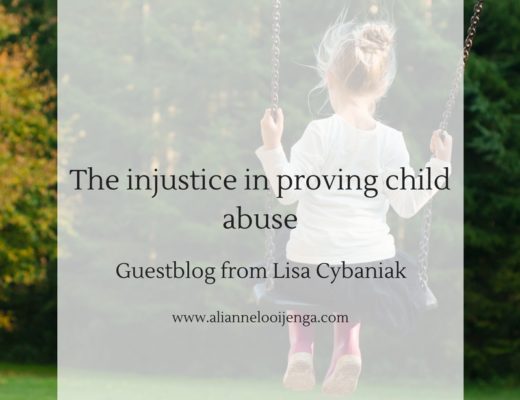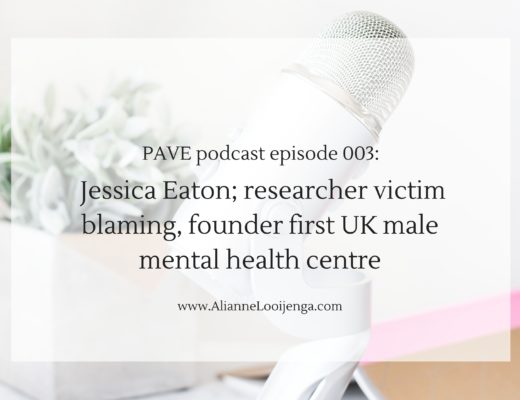(This blog was originally written by me for LifeSurfer in 2015/2016)
Question from a reader
I received an email from someone in a tough situation with Youth Care, the family judge and the Dutch Children and Family Court Advisory and Support Service. Because I receive this type of questions quite often from women all over the world who are forced to give their children to their abusive ex-partners I thought it would be wise to translate my blogpost for the Dutch LifeSurfer and share it with you all. I’m aware that I’m recommending Dutch lawyers and am talking about a Dutch case and Dutch organisations, but I know that a lot of you are in the same tough situation. To find good lawyers and other professionals in your neighbourhood, use Google, investigate, ask questions and seek references from professional domestic violence organisations in your area.
My reply to the reader’s question:
Dear …
I am sorry that you’re in such a tough situation. I understand how you feel – the enormous frustration and helplessness =that makes you want to fly up the wall.
Personally, I can’t do a lot for you besides showing my sympathy and give you some tips from my experiences about what to do and what not to do. Keep in mind that every situation and outcome is different and that, from my computer, I can’t study all facets of your situation or predict outcomes.
Tip 1;
don’t stress the situation with Youth Care and CPS type of organisations too much; how weird that might sound. I know you want to show them that your concerns are real and justified but the more you underscore the situation, the less they will believe you. In the beginning, I thought: ‘If I tell them 10 times what happened to the children and me, they will believe me.” However, this had the opposite effect. Don’t get me wrong; you do have to tell them what happened to you and especially the children but don’t keep telling them the same thing over and over again. When they decide that they don’t believe you or that they are not going to act on it because of their inadequate knowledge about child abuse, partner violence and the ruling dogma’s within the organisations that should defend your child, you’ll find it hard to change that mentality. It might be best to find others to support your cause.
Tip 2;
make sure you have a very good lawyer and be critical before you hire one. It is important that you feel supported and taken seriously. My lawyer is Mr. Erkens from The Hague. You need a lawyer with his or her heart in the right place, who is willing to fight for your case. Mr. Erkens is a real support during hearings and shows me that I am not the only one defending my children. I live up north and his office is in The Hague but he doesn’t have any problems traveling back and forth. Before him I had other lawyers who’s main priority was keeping a good acquaintance with the judge than to defend my children with a bit more passion which resulted in much pain. Finding an lawyer who puts your children and you first and really go for it, is an enormous support.
Unfortunately, the truth is that the current justice system works against women. Many professionals are busy turning the tides but until then the situation is as it is. Another law firm that has my (professional) interest is Van Kempen cs in Amsterdam. I don’t know Van Kempen cs personally, but they have specialisations that could be helpful in your case.
You can follow my path, but there can be consequences
If you think your kids are suffering from the visitation rights, you can follow my path. I didn’t give away my children for visitation because I believed their physical and mental safety was the most important thing. During the initial visitations my children were abused both mentally and physically by their biological father with all the consequences that had for them. When I stopped the visitation I was threatened with hostage, fines and the threat that the children would have to live with their biological father although he abused them. Ultimately, I received only fines but for me, the safety of my children was more important than anything else.
Tip three;
Keep a journal in which you write down everything that happens. Make sure you have a voice recorder app on your phone or tablet. You can use this to record your ex and/or child, for example, when your child says something shocking or shares her or his experiences with their biological father. Don’t ask much questions but give room for your child talk freely. Questions are often seen as if you lead the child in his statements and thoughts about her or his father.
Tip four;
Seek help for your child on your own. Don’t let a Youth Care employee or organisation do this; instead ask, for example, an independent specialised childpsychologist. Look for childpsychologists who specialise in the field of child abuse, trauma recovery etc. Such a psychologist can draft an independent report. Ask this psychologist how you can best guide your children through these hard times.
Beware; There are many youthcare organisations that you can’t recognise as such. They present themselves as independent operating companies, but are part of youth care. A practice with only a few psychologists specializing in children and adolescents is usually trustworthy but try to find out if they are really not part of youth care in your region.
Tip five;
Press charges. You didn’t tell me the age of your children and if you have pressed charges but the latter is important to consider if something has happened in the area of abuse. If you are abused during the relationship, if he threatens you now, press charges. If you’re worried that the charges will trigger or can lead to an angry outburst from him ask for help from a shelter so you and your children are off the radar for a while untill he has calmed down.
Support in your battle for the welfare of your child
Here are a number of books that I recommend you read:
Books of Lundi Bancroft like for example: “why does he do that?” and Donald Dutton: “the abusive personality”
This link might interest you as well:
https://www.domesticshelters.org/domestic-violence-articles-information/category/child-custody
I also have a Facebook page for lifesurfer: www.facebook.com/lifesurfer.net. You can also search for support groups in your neighbourhood.
The battle you must fight for your child’s interest is very tough, and I’m very sorry you must go through it. Be sure to take a moment for yourself now and then to clear your head. Follow your own insights. Remember that I give you tips based on my experiences and my experiences and outcomes may differ from yours.
Do breathing exercises (you can’t make long-term decisions while you’re stressed) and make sure you have support around you.
I wish you lots of strength and happiness,
Alianne




No Comments